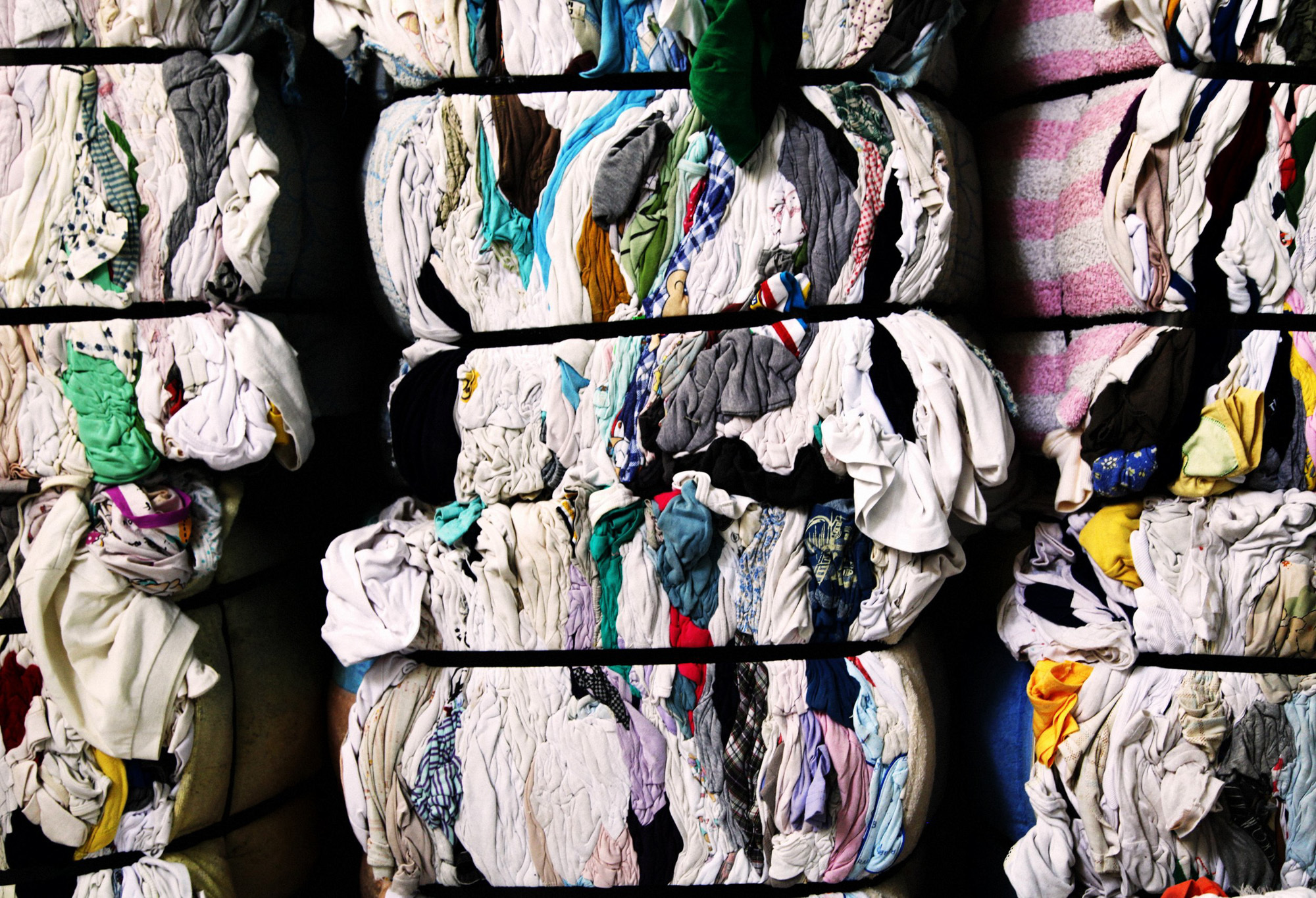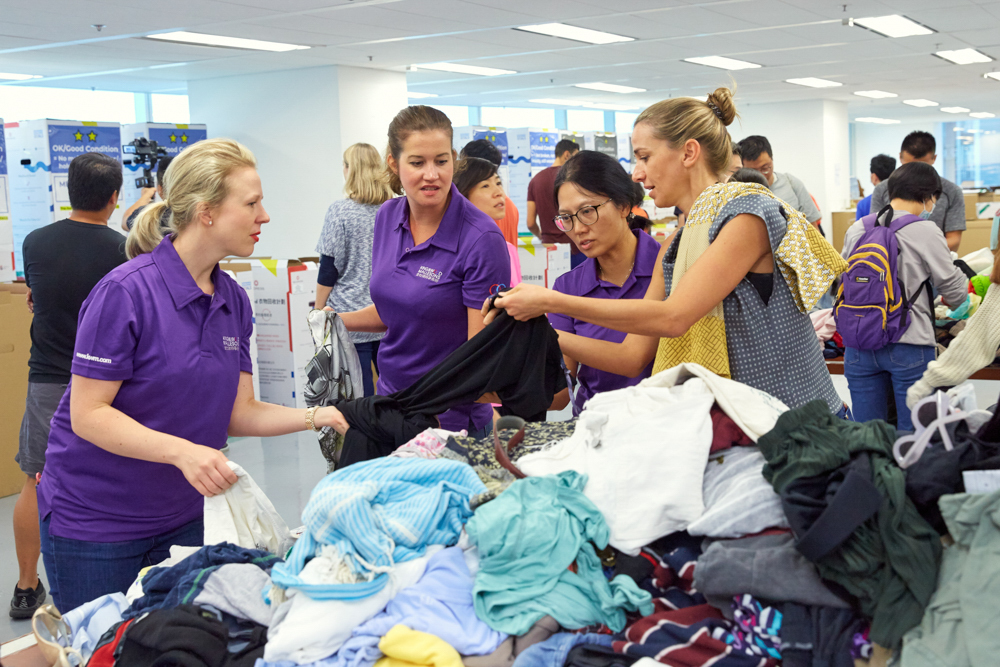Women in sustainability: Christina Dean, Redress
In honour of Women’s Day, we created our ‘Women in Sustainability’ series, which celebrates three female entrepreneurs making positive impacts through their conscious businesses. Earlier this week, we featured our interviews with Toni from Love Hair and Sonalie from Green Queen & Ekowarehouse (which you can read here and here). Today, we share the story of Christina Dean, who founded her environmental charity Redress with the mission to reduce textile waste and catalyse a circular economy.
Christina is inarguably the heart and soul of Redress and has been at the forefront of inspiring positive change in the fashion industry through panel discussions, seminars, workshops and documentaries – just to name a few. Through Redress, Christina also established the Redress Design Award, the world’s largest sustainable fashion design competition that educates emerging designers to employ sustainable practices in their designs in support of a circular economy. Her most recent venture, The R Collective, is an upcycled luxury brand that collaborates with alumni Redress Award designers in creating capsule collections for retail.

Christina Dean
How did you get into the fashion industry, and was there a specific event in your career that inspired you to launch Redress?
My journey into sustainable fashion hasn’t been typical. I started as a dentist with a profound interest in public health issues and later retrained as a journalist in London. Upon moving to Hong Kong in 2005, I wrote mainly on environmental pollution, and after deep-diving into China’s pollution landscape, I discovered how polluting the fashion industry is and how little was being done to address this. I felt deeply moved to raise awareness about fashion’s environmental impacts. And that is why I started Redress with a mission to reduce fashion’s waste.
How has Hong Kong’s sentiment towards sustainable fashion and consumer culture changed since you launched Redress? What was the biggest challenge you and your team faced as you worked to change people’s mindsets on textile waste?
Over the last 13 years, Hong Kong has woken up to the reality of fashion’s over-consumption – and that of excess waste and pollution – which is validated by the steady stream of horrible reports that back this up.
Despite the awareness, things are worsening. We’re sending more textile waste to Hong Kong’s landfills year on year. Hong Kong is a consumer society and although we might ‘say’ one thing, the reality is that we do not follow through with our behaviour.
The biggest challenge in educating – or ‘inspiring’ – consumers is that when it comes to fashion consumption, we tend to buy with our emotions, or compulsions, involved. Many of us have the desire to acquire more clothes to satisfy complex psychology drivers. Altering consumption drivers is not straightforward since we need to replace our consumption needs with other interests and pursuits. Changing clothing consumption requires a deeper look at our value systems.

More and more textile waste is sent to Hong Kong’s landfills year-on-year
Clothing brands are beginning to practice transparency, sharing details ranging from ethical sourcing to a sustainable supply chain. How has this affected retailers, specifically those in fast fashion?
There is a big push for transparency in fashion driven by consumers who want to know where their clothes are made. It seems archaic that some global businesses do not have a decent grasp on where their products, from fibres to fasteners, are made.
We see that improvements are being made with some businesses in response to consumer pressure; publishing their suppliers online, consolidating the amount of suppliers they have to make transparency and supply chain tractability more achievable; to investing into technology to allow them to track their supply chain. The first step towards this is transparency, and only after this can we have traceability.

Christina sorting clothes during Get Redressed Month 2019
Where do you see sustainable fashion in the next ten years?
The only way is up for sustainable fashion – sadly only because we are in such a dire environmental crisis and the tempo, and temperature literally, is palpable. CEOs are pledging to all sorts of environmental targets and now need to find a way to achieve their targets, even though this is not easy. We will see ‘sustainable fashion’ become more mainstream, in that more of the ‘conventional’ fashion industry will attempt to be more ‘sustainable’.
We are increasingly going to see fashion’s climate impact on the chopping board, for rightful reasons given that around 10% of global CO2 emissions are generated by the fashion industry. With consumer concern high – just look at the global climate marches and the protests to ban major fashion weeks – you get a glimpse of the very troubling time that fashion is going to have in the future.
We have to stop focusing on making fashion ‘less bad’ and instead we need to make fashion ‘good. ’The industry as we know it requires consumption to grow and so finding a way to decouple business growth and sustainability is at the major heart of what we need to crack. We can only do this by promoting a circular fashion economy where ‘waste’ is used over again, but we are far from this as only 1% of clothing waste is currently recycled back into clothes.

Redress Design Award 2019
What’s next for Redress?
We’re about to move into our new, exciting space – which will be Hong Kong’s first sustainable fashion hub in Sham Shui Po. We’re also neck-deep in organising our 10th cycle of the Redress Design Award, where along with the main competition, we have an ‘All-Star Competition’ open for our Alumni designers. We’re very excited about our Alumni’s success, with now over 180 alumni from 30 countries/regions globally who continue to push sustainable fashion around the world.
The R Collective (our brand inspired by the work of Redress) gathers momentum around the world. With debut up-cycled collections in Lane Crawford and Barneys, The R Collective is now available on Net-A-Porter, with an incredible collection designed by two Chinese sustainable designers, Wen Pan and Weiyu Hung.
We thank Christina for sharing her invaluable insights on the fashion industry and creating a circular economy. If you’d like to learn about textile waste or begin your journey into sustainable fashion, be sure to visit Redress’ website - they offer an abundance of educational resources and workshops to help to get you started!